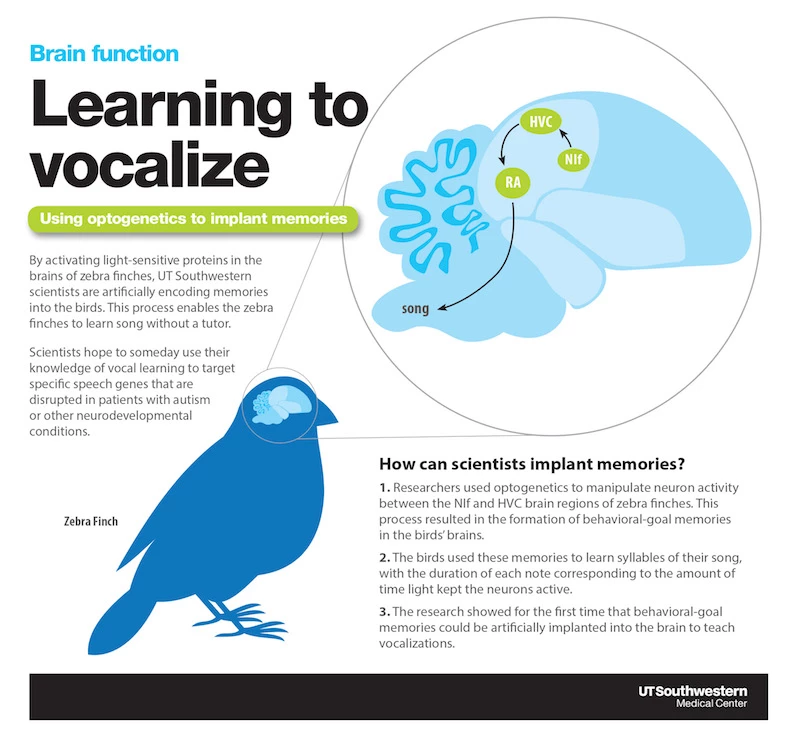Babies learn to speak by mimicking their parents – just ask anyone who’s caught their child casually repeating an obscenity they didn’t realize they'd heard. While studying just what’s going on in the brain during this kind of vocal learning, researchers from the University of Texas Southwestern have managed to implant “memories” into the brains of zebra finches, teaching them to sing a song they’ve never actually heard.
Finch fathers sing to their chicks while they’re young, and eventually the baby birds will start to mimic them. Over time, they’ll master the song and pass it down to their own offspring. In a way, zebra finches show a simplified version of human vocal development.
But in the new study, the researchers bypassed this process and directly manipulated the brains of young finches, teaching them parts of a song without any kind of tutoring from their parents.
They managed this using optogenetics, a technique where flashes of light are used to stimulate certain neurons in the brain. In this case, the scientists manipulated the connection between the part of the brain that processes what the animal hears, and the part that controls the vocal “motor.” In effect, they were creating auditory memories that would normally be coming from outside, and the bird would naturally try to mimic the signals.
The researchers used a kind of Morse code to teach the finches how long syllables of the song should be. Longer pulses of light told them to sing longer syllables, and vice versa. And sure enough, the birds eventually learned to sing along, even though they’d never been taught by an adult finch.

That said, the song itself is much simpler than any that the birds would naturally sing. Length of syllables is just one part of a complex musical composition, and the researchers say they still don’t know which parts of the brain control other aspects like pitch and the orders of each sound.
“We’re not teaching the bird everything it needs to know – just the duration of syllables in its song,” says Todd Roberts, lead researcher on the study. “The two brain regions we tested in this study represent just one piece of the puzzle. If we figure out those other pathways, we could hypothetically teach a bird to sing its song without any interaction from its father. But we’re a long way from being able to do that.”
This isn’t the first time that scientists have been able to effectively implant memories into the brains of animals. Last year a team showed that learned behaviors could be extracted from one marine snail and injected into another, so that the receiving snail reacted to a stimulus the same way the donor snail would – even though the recipient had never before encountered that itself.
The team on the new study says that the work could open up ways to study and potentially treat certain speech disorders in humans, but there’s still a lot to do because the human pathways are so much more complex.
The research was published in the journal Science.
Source: UT Southwestern





